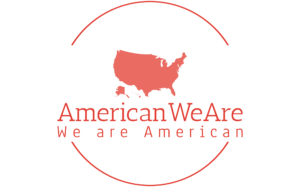The Role of Content in Digital Marketing
Content is at the heart of digital marketing. It plays a crucial role in attracting, engaging, and converting customers. Whether it’s a blog post, video, infographic, or social media update, content is the vehicle through which businesses communicate their message and provide value to their audience.
One of the main goals of content marketing is to establish a strong brand presence and build trust with your audience. By consistently delivering valuable and relevant content, businesses can position themselves as thought leaders and experts in their industry. This helps build credibility and trust, which are crucial for driving customer loyalty and advocacy.
Content marketing also plays a vital role in search engine optimization (SEO). By creating high-quality and keyword-optimized content, businesses can improve their website’s visibility in search engine results pages (SERPs). This drives organic traffic to their site, increases their online visibility, and enhances their overall SEO efforts.
In addition to SEO benefits, content marketing also helps businesses engage with their audience on social media platforms. By creating and sharing valuable content, businesses can spark conversations, encourage user-generated content, and build a community of loyal followers.
When creating content for digital marketing, it is important to understand your audience and their needs. What are their pain points? What information are they looking for? By addressing these needs and providing valuable solutions, businesses can create content that resonates with their audience and drives them to take desired actions.
Search Engine Optimization (SEO) in Digital Marketing
Search engine optimization (SEO) is a critical component of digital marketing. It involves optimizing a website to rank higher in search engine results pages (SERPs), driving organic traffic and increasing online visibility. Here are some key aspects of SEO and how they contribute to digital marketing success:
Keyword Research
Keyword research is the process of identifying the keywords and phrases that people use to search for information online. By conducting keyword research, businesses can understand what their target audience is searching for and optimize their website content accordingly. This helps improve the website’s visibility in search engine results and drives more targeted traffic.
On-Page Optimization
On-page optimization involves optimizing various elements on a website to improve its visibility in search engine results. This includes optimizing meta tags (title tags and meta descriptions), using relevant keywords in the content, optimizing images, and improving site speed and user experience. By implementing on-page optimization techniques, businesses can improve their website’s ranking and attract more organic traffic.
Link Building
Link building is the process of acquiring high-quality backlinks from other websites. Backlinks are an important ranking factor in search engine algorithms, as they indicate the credibility and authority of a website. By building high-quality backlinks, businesses can improve their website’s authority and visibility in search engine results.
Technical Optimization
Technical optimization involves optimizing the technical aspects of a website to improve its crawlability and indexability by search engines. This includes optimizing the website’s structure, improving page load speed, fixing broken links, and implementing schema markup. By ensuring that the website is technically optimized, businesses can improve their chances of ranking higher in search engine results.
Content Optimization
Content optimization involves creating high-quality and keyword-optimized content that resonates with the target audience. By conducting keyword research and incorporating relevant keywords into the content, businesses can improve their website’s visibility in search engine results. It is important to create content that provides value to the audience and addresses their needs and pain points.
